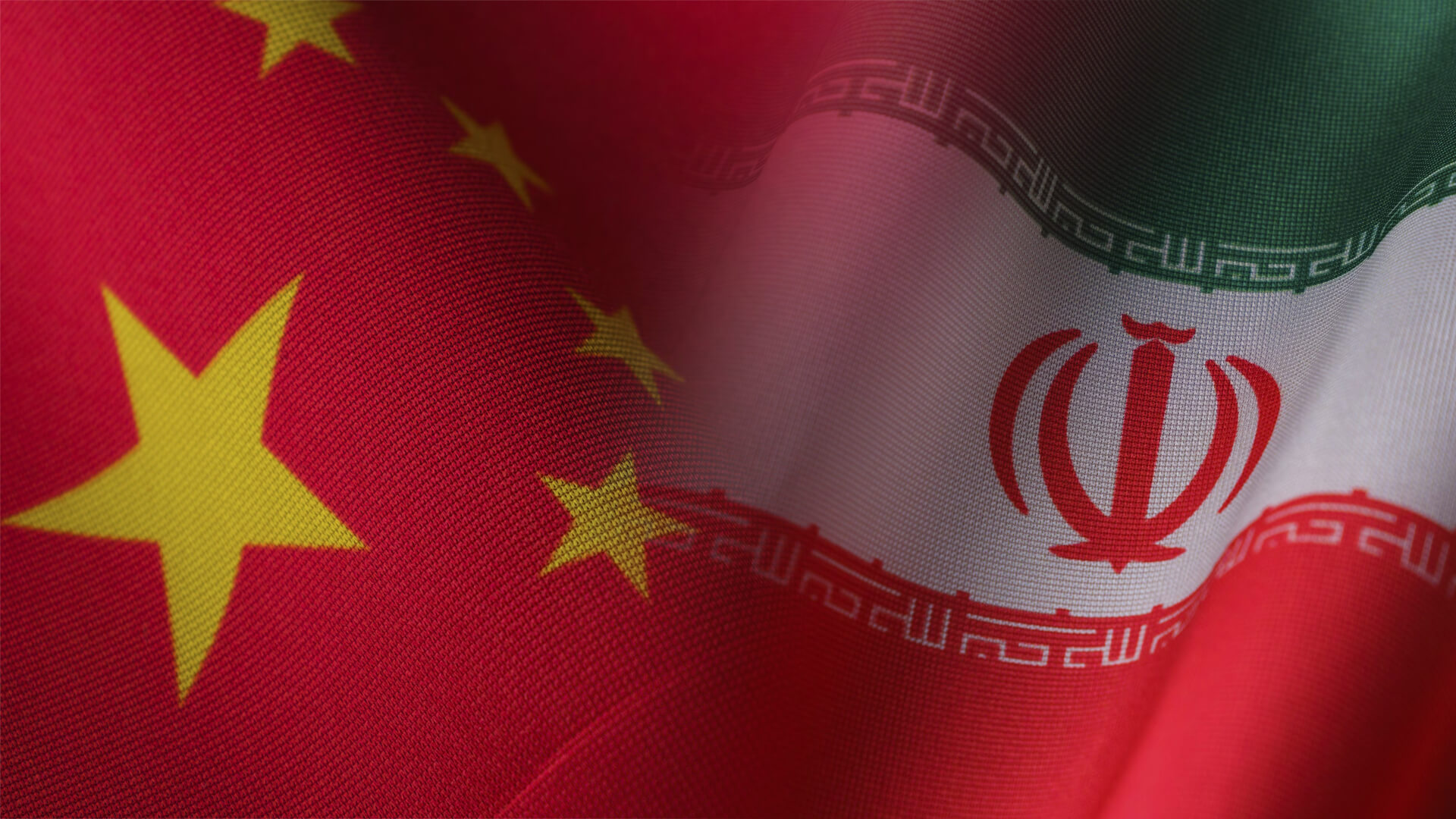The Live Q&A is tomorrow! Our next Patreon Live Q&A for our Analyst members is on Wed, July 30 at 12 PM (ET)!
If you’d like to join in on the fun, get early access to the daily videos, exclusive access to the community Discord, daily news digests, and more, click the link below to sign up for the Analyst Tier on Patreon:
For the month of July, all the proceeds from new memberships will be donated to our chosen charity partner—MedShare. To learn more about MedShare, click the link below:
Iran was once a breeding ground of strategic importance. Well, they at least had the right stuff in the right place…or there was enough chaos to convince people to watch them. But times are changing, and the Chinese are no longer interested in Iran.
Iran has had no shortage of setbacks in recent times: battles with Israel, US hitting nuclear sites, and a diminishing influence over Hezbollah, the Houthis, and Iraq. And the amount of oil coming out of Iran pales in comparison to that of Saudi Arabia (and others). The Iranians are also losing their “control” over the Strait of Hormuz.
Iran is losing everything that has defined the country for decades, and the Chinese are taking notice.
Transcript
Hey, all. Peter Zeihan here. Coming to you from Colorado. And today we’re gonna talk about how the Chinese view the Persian Gulf, specifically Iran.
In the last month, the Israelis have launched an air war that’s basically destroyed Iran’s capacity for air defense. And the United States then went in and dropped a few bunker busting bombs on their nuclear program.
Too soon to know if that actually worked. But, you know, the point is, Iran is not having a great time of it. They’ve lost control of Hezbollah functionally in Lebanon, the Houthis aren’t doing the best. They’ve lost control of Iraq. It’s been a really bad few years for them, and it’s the type of thing that’s going to take decades to kind of fix.
So a lot of folks have assumed that for the last 20 years that the Chinese have considered Iran a strategic pull of any of their multipolar policy. And that’s that’s just not true. It’s not that the Chinese don’t see things that they can cooperate with Iranians on. Far from it. But Iran’s just not that important. A couple things to keep in mind at their peak.
Back in the 1970s, before the Shah fell, before the clerics took over and it became the Islamic Republic of Iran, that has been hostile to really everyone. Iran was a major oil producer, about 4 million barrels per day, of which about 3 million barrels per day would be exported. But at their height, three more 3 million barrels per day exported.
They were only exporting half of what Saudi Arabia exported at their absolute lowest. Saudi traditionally, produces something like 9 to 12 million barrels per day, with like 80 to 90% of that being exported. Iran has a much larger population, much more domestic demand, and can’t produce nearly as much. So if you are going to care about the Persian Gulf, Saudi Arabia is far more important than Iran, and Kuwait and the UAE together are more important than Iran.
And the Chinese know they can do math. So that’s problem one with a theory that Iran’s really important. Number two, reason that Iran would be important is because it shares a long border with Iraq. And if you care about Iraq for whatever reason, then the Iranians can cause no end of problems there. Well, under the Biden administration, we withdrew from Iraq completely.
And all of a sudden the strategic interest just isn’t there. So Iran can no longer use Iraq as a launching point into other parts of the Persian Gulf unless it wants to invade it first. And that would be, you know, noticed, the third issue was the Strait of Hormuz. The idea is that Iran will use jets and missiles and speedboats to basically block the Strait of Hormuz and prevent oil from getting in and out.
Two problems here. Number one, the U.S. doesn’t care for the United States purposes because we are now a significant net exporter of crude, and we just don’t take a lot of crude from the Persian Gulf at all. Our interest in the Persian Gulf has always been to keep oil flowing to the Bretton Woods allies, so that they would be on our side versus the Soviets.
But the Soviet Union is long gone. And now the long largest consumer of Persian Gulf crude is China. So the idea that the United States will get involved in a war with Iran to protect oil flows to China, that’s some very bad strategic math. And the Iranians know that and the Chinese know that. So what’s left? Well, shit.
That’s everything. So bottom line is that Iran is not nearly as important to the Chinese or the Americans as it used to be. Strategically. It’s only falling off the map, especially now that doesn’t have production ability. And economically, ever since the American shale revolution really kicked up around 2012, that’s when we got into oil shale in a big way, with the United States really doesn’t care economically.
And that’s before you consider the recent changes in the administration, with the Trump administration being broadly hostile to all of the old allies, whether it’s France and Germany or Korea and Japan, countries that use Persian Gulf crude. So we need to start thinking about this in a different way. The country that is likely to close the Persian Gulf isn’t Iran anymore.
It’s probably Saudi Arabia and maybe even the United States, because those are the countries that would have strategic alternatives. Saudi Arabia can ship a huge amount of crude out of its western coast, and just avoid Iran and the Gulf completely. And if you shut down the Persian Gulf, the countries that suffer, the one that really goes down the most is China.
And so from the Chinese point of view, Iran is no longer a potential strategic asset. It’s a vulnerability. And it’s sooner or later the Americans are going to realize that.








